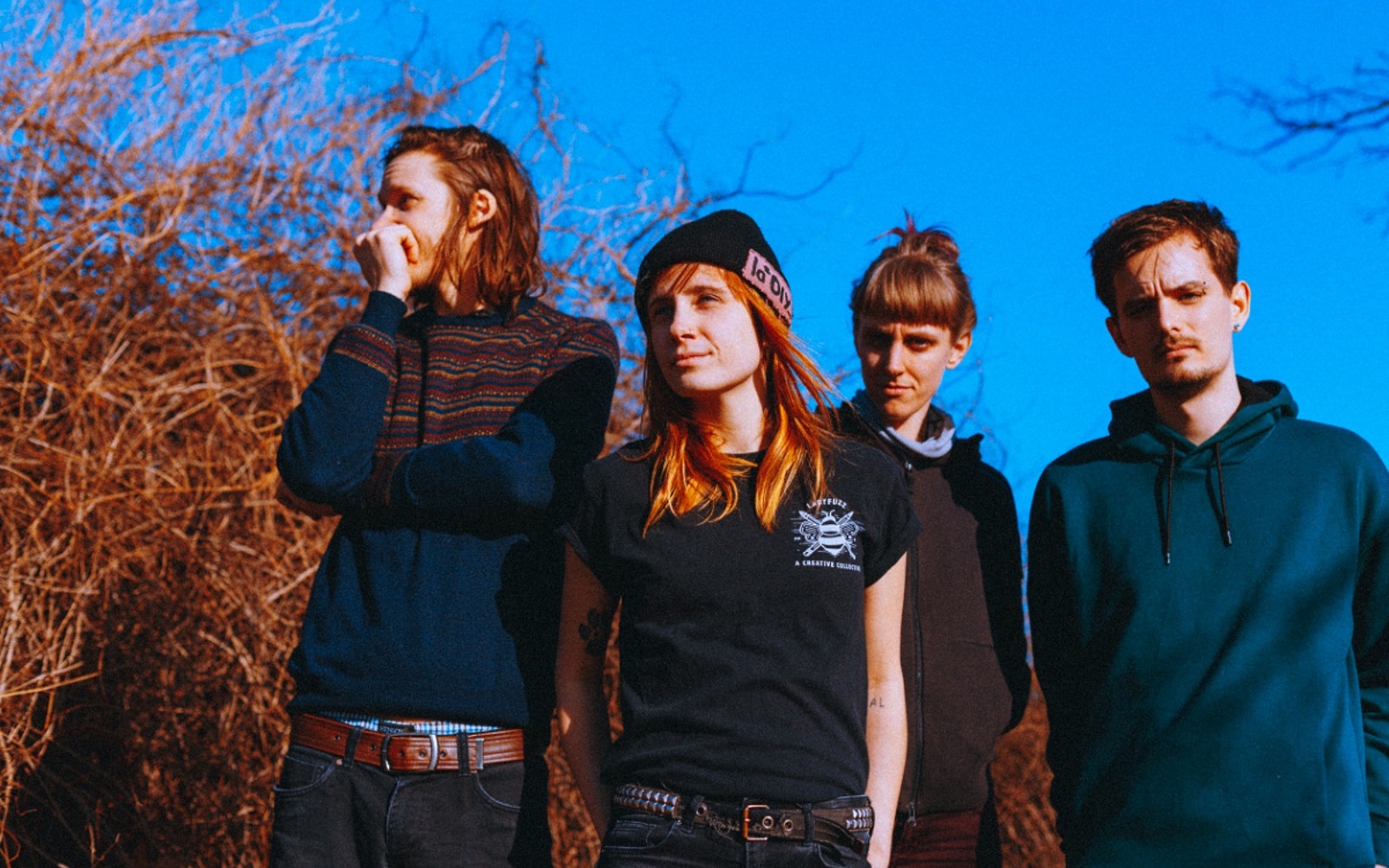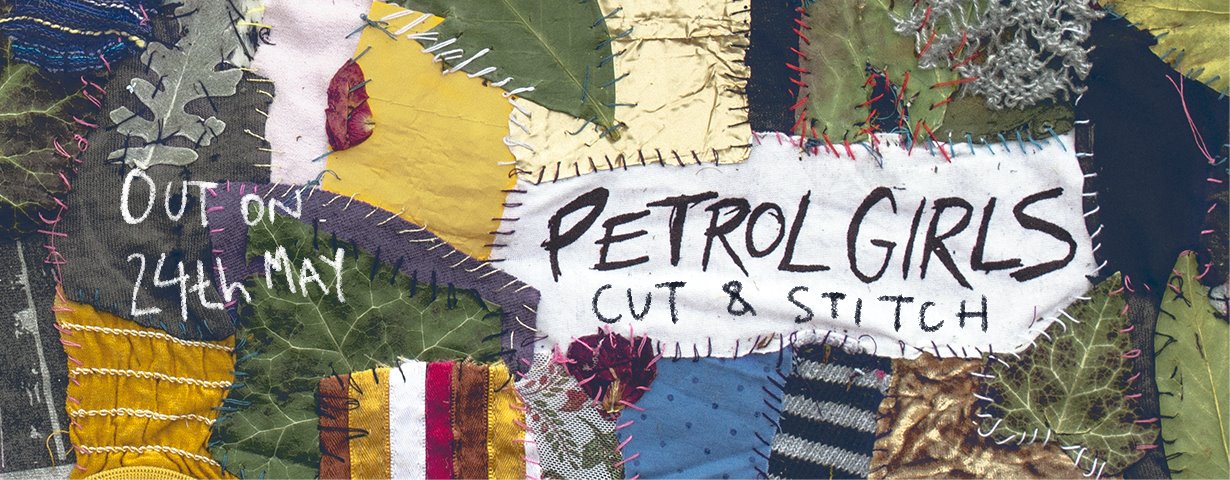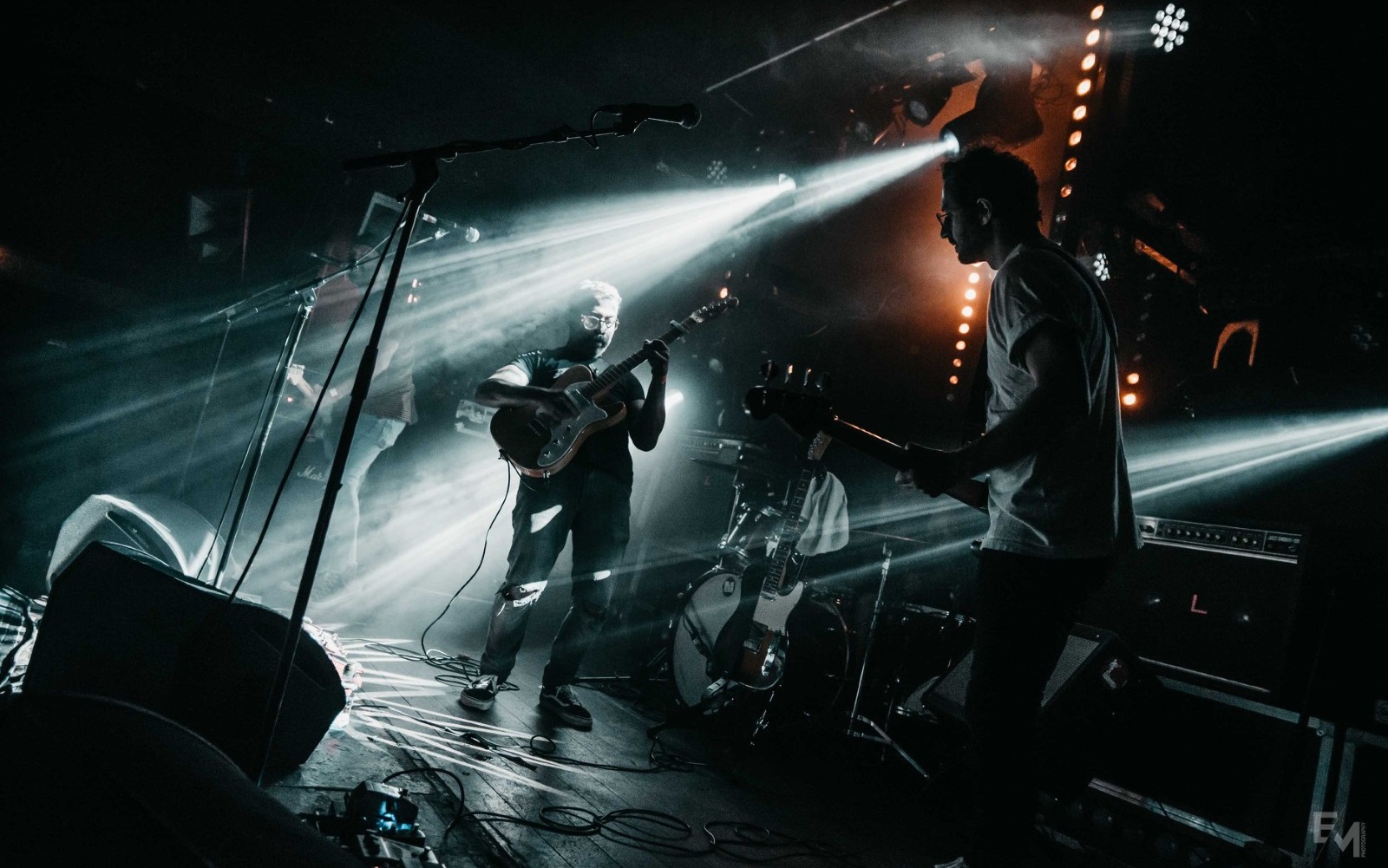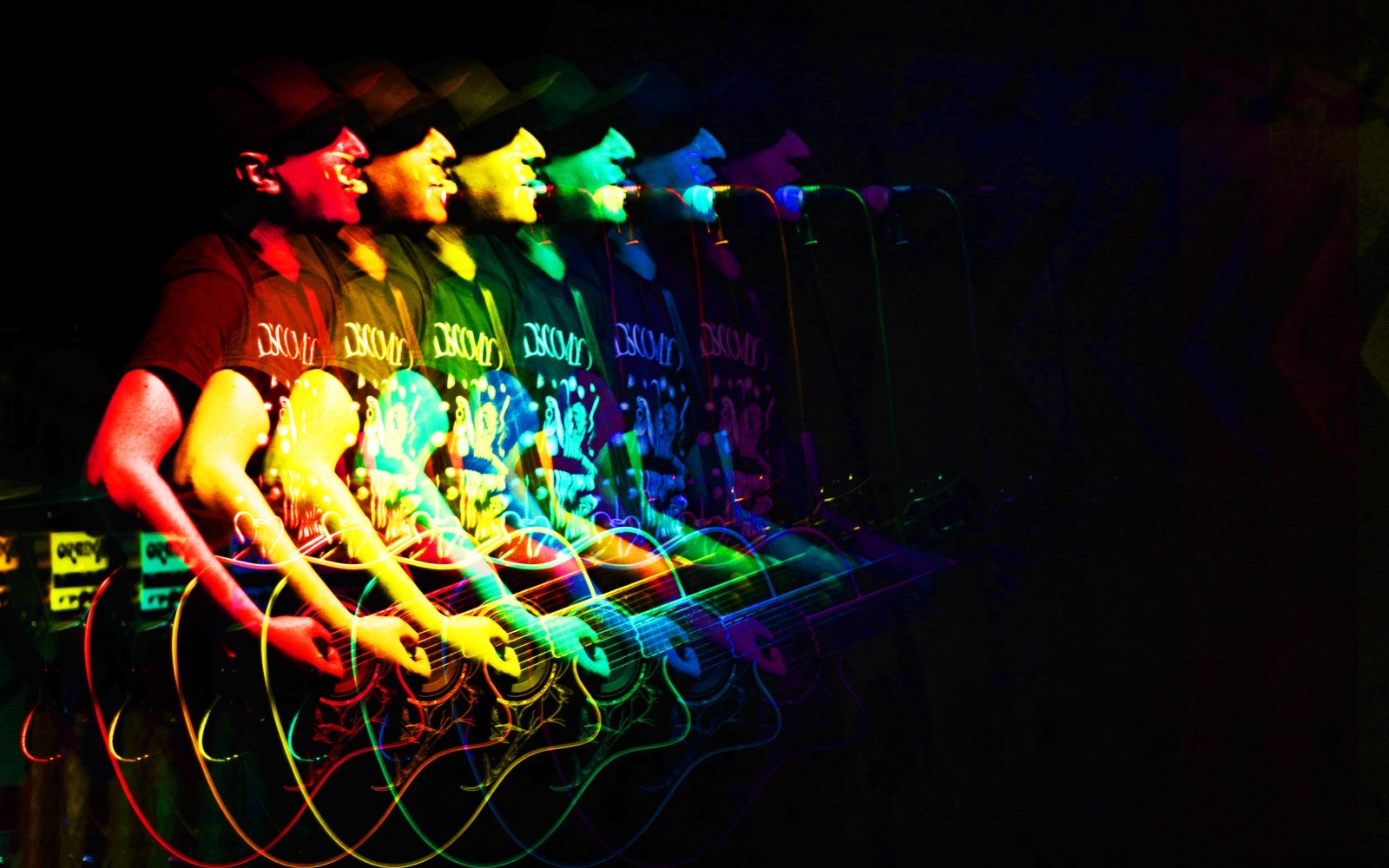Cut & Stitch, the second LP from British feminist post hardcore punk band PETROL GIRLS landed officially on Friday, May 24th, via Hassle Records, and we’re pleased to give you our newest interview, a follow up to our insightful talk from 2016. We sat down to talk about feminism, talk about current political climate, the growing culture of misogyny, homophobia, and racism,
“Cut & Stitch is a patchwork of different sounds, ideas and feelings. It’s the most experimental record we’ve made so far, both musically and lyrically. Cutting and stitching is a process that can go on indefinitely – stitches are easily unpicked, new shapes can be cut, everything can be rearranged. We cut our patches off of old clothes and sew them onto something else. Continuity is an idea that underpins the record, from ‘the sound does not arrive’ to ‘we’re not finished, we never fucking will be.’ This follows on from the sentiment of our last EP, ‘The Future is Dark.’ Political change is a slow, complicated process that’s often only partly visible with hindsight. Making change is a constant collective process that never stops. Its probably impossible for us to see our place within it or to know what consequences our actions will have. It isn’t as simple or hopeless as straightforward victories and failures.
Feminism has become more of an overall approach than an obvious topic, seeping into the way we think about everything from the environment to mental health. We’ve also started to think more about what feminism means for men, given that half of the band are men, and explore the perspective of a man struggling with expressing his emotions in ‘Talk in Tongues.’
The majority of the lyrics were written in the studio. I was having a difficult time, unsure about where to live after we finished the record, and burnt out from a tough year of personal and legal challenges. Something that I’ve reluctantly allowed feminism to teach me is that we have to tend to our own wounds, and that sometimes being vulnerable is just as radical as being angry – it certainly scares me a lot more. Rage on its own isn’t sustainable. We hope this is a more honest and human record.”
The band is touring extensively from the beginning of May, including in-stores at Rough Trade, tours with War On Women and La Dispute, plus appearances as festivals like The Great Escape, 2000trees and Roskilde.
Hey there! Can you believe it’s been over 3 years since our last interview? Times flies, huh? How are you? How has the journey been for you since 2016?
Hey! Wow that really did fly by! We’re good thanks – just in the van night driving to our sleeping place. We’re on a huge tour at the moment -something like 2 months in total. I guess quite a lot has happened since 2016 – we’ve toured loads – we actually finally got to play in Warsaw! We’ve all moved to different countries at various points, and of course we wrote and recorded and have now released our new record Cut & Stitch!
You’ve been known as a ‘feminist’ post hardcore band, and obviously the force and the belief is still a thing both for your message and in the contemporary moment in general, but I can see you kind of broadened the variety of lyrical topics. What themes do you touch on ‘Cut & Stitch’?
I think we only really broadened in terms of addressing more personal issues. Politically we’ve always dealt with a wide range of issues, and our last album included tracks about the violence of borders, the way that protesters are labelled violent when what they are protesting is infinitely more violent, rewilding, egoism and anticapitalism more broadly. With the new record we’re still dealing with a wide range of political topics, but also adding in more personal or vulnerable lyrics as well – which is a political decision in itself.
In Cut & Stitch there are songs dealing with the political potential of sound, the control and containment of marginalized voices, accusation of naivety, puling yourself out of a bad spell of mental health, feeling mined and unable to give any more, the entitlement that rich white capitalists seem to think they have over people’s bodies, labour and the earth, as well as songs about moving around all the time and how this can make it hard to feel part of a community, and losing my family dog.
After more than two years of Trump’s presidency that provided a crystallisation and catalysed the intensification of misogyny, how do you see the world changing in this regard?
Oh god where to start?! This is a huge question, and obviously tied to the rise of the far right and fascism more broadly. I think all marginalized groups are facing a rise in oppression and violence as a consequence of this shift to the right which Trump is both a symptom and catalyst of. We have to acknowledge that he didn’t rise in a vacuum, and that there are dangerous far-right, ‘alt-right’ and fascist politicians and groups across the globe. I find it hard to get my head around the bigger picture because it feels like everything is happening so fast, but I can comment on some snapshots of news that have disturbed me greatly, the first being the anti-abortion legislation changes in the states, on top of the ongoing illegality of abortion in places like Poland and Northern Ireland. Denying people with wombs access to abortion is rooted in a desire to control women’s bodies – let’s face it, the people imposing these laws don’t even recognize gender identities outside the binary. It’s draconian and archaic and fucking backward. I had an abortion myself last year – it was free, I was looked after by NHS nurses, when I got home from hospital I started booking a tour, I have no regrets. It should be able to be like that for everyone! We must keep fighting for everyone’s right to choose!
I was also appalled to read the news about the sixth death of a migrant child in US custody, which was made public a few weeks ago. But again I think this needs to be contextualized in terms of the disgusting treatment of migrants, refugees and asylum seekers across the West. The UK loves to point fingers at the US separating migrant children from their parents – yet this is a regular occurrence in the UK. The guardian reported that possibly hundreds of children each year are separated from their parent or carer who is placed in immigration detention, for an average of 270 days, with numerous cases of parents being deported without their child. The UK remains the only country in the EU to indefinitely detain people that are perceived to have the wrong piece of paper certifying their citizenship. In 2012 Theresa May (Home Secretary at the time) introduced a policy explicitly named ‘Hostile Environment’ designed deliberately to make life as hard as possible for people trying to establish new lives in the UK. “Deport first and hear appeals later” was an explicit part of this policy. People are regularly deported back to places where their lives are in very real danger. Famously, Jimmy Mubenga was killed by G4S security guards on one such flight. I’m citing UK cases because that’s what I’m familiar with, but there are similar horror stories everywhere, and I think its vital to not fall into the trap of acting like Trump is at the heart of everything thats going wrong. There are changes that all of us can contribute to making within our own communities, in global solidarity with others facing similar threats, and together we can and must change the context in which cartoon-villian-like figures such as Trump gain such a platform and political power.
There’s so much more to say, and I’m probably oversimplifying things, but another story that came to my attention last night, was a very recent attack on a London bus. Melania and Chris – a lesbian couple that refused to kiss for the entertainment of a group of men – were badly beaten up for refusing to capitulate to such grotesque male entitlement. Apparently their attackers were aged between 15 and 18 years old. Somehow these fucking vile young men have learnt that they are so entitled to women’s bodies, and that lesbians exist for their gratification, that when their demands were refused, they responded with clearly homophobic and misogynistic violence. Many women and LGBTQI people are already well aware of the violence that lurks beneath the male entitlement that we encounter on a daily basis, but it seems that such violence is coming closer to the surface.
We have to fight back – and for many people that is a matter of survival. It’s very easy to feel overwhelmed, but I really believe that all of us can play a part in challenging the growing culture of misogyny, homophobia, racism, transphobia and far-right sympathizing within the communities that we are familiar with.
Who influenced your development as a conscious feminist with political and social sensibility? Can you share some good sources, reads, and works that could inspire our readers to broaden their horizons and step out of the comfort zone?
It was punk to start with! And reading feminist literary criticism when I was at school. When I moved to London in 2010, the anti-austerity movement was blossoming, and it politicized me massively. I read a lot of Laurie Penny at the time because she was reporting on the demos and occupations that I was involved in, from a perspective that I shared. I have a lot of respect for her as a writer because she’s really open and reflective about her mistakes. Rebecca Solnit is another writer that I tell everyone about all the time – her writing has formed the basis of so many of our songs, and informed my political outlook in general. Her book Hope In The Dark, changed my perspective on how political change is made, allowing me to see myself as just a tiny part of a huge web of people all working to create change which will happen in the most unexpected and complex ways. I find that so empowering, to feel tiny and part of something huge. It stopped me feeling total despair! I’m also reading Living A Feminist Life by Sara Ahmed at the moment. I’ve followed her feminist killjoys blog for a while because I love her writing style and the way she plays with language to make you shift perspective in a subtle but super powerful way. An environmental writer and researcher that I have massive respect for is Donna Haraway – her book Staying With The Trouble is a brilliant and inspiring synthesis of ideas across all kinds of different disciplines. It makes me want to get ‘Stay with the trouble’ and a tattoo of an octopus.. I’m also a massive fan of Sister Outsider and other works by Audre Lorde. bell hooks is an essential read – ‘Feminism is for Everyone’ is a great starting point for people just getting into feminism.
I also am so lucky to have some incredibly talented friends who’s just written novels or memoirs. Zeba Talkhani – who I met as a fellow writer for 404ink’s anthology Nasty Women – is just releasing her memoir – ‘My Past is a Foreign Country’ – which explores her life growing up in Saudi Arabia, India, Germany and eventually moving to the UK, and finding her identity as a muslim feminist. Another good friend Jessica Andrews also just released her debut novel Saltwater, which follows a working class girl’s experience of moving from the North East of the UK down to London, and explores a lot of class politics. Both books have some incredible insights into mother and daughter relationships as well. You have to read both of them!!!!
Ok, so lastly, tell us about your plans for the coming months, tours and other stuff that excites you this year.
We’re on tour with War on Women at the moment which is awesome!!! Then we’ll be heading out immediately after with La Dispute and Milk Teeth – we’ve got our new record Cut & Stitch out so we’re tour tour tour!!!











